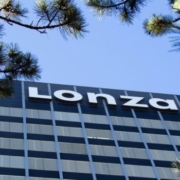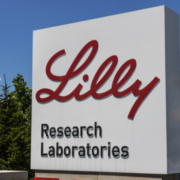AstraZeneca expects to produce more than 100 million doses of the company’s Covid-19 vaccine – developed with Oxford University – during February, ramping up to more than 200 million a month by April, Chief Executive Pascal Soriot said.
AbbVie announced the company’s latest chimeric antigen receptor (CAR)-T cell investment, a collaboration with Caribou Biosciences worth $40 million up front in cash and equity to develop two CRISPR-edited cell therapies against AbbVie-specified targets.
Belgo-Dutch biotech Galapagos NV and U.S. partner Gilead Sciences Inc. will discontinue late-stage trials testing their experimental drug ziritaxestat in patients with pulmonary fibrosis.
The program unites academia and industry, providing students with a real-world, skills-based education and direct connections to leaders in healthcare marketing and communications.
Johnson & Johnson Chief Executive Officer Alex Gorsky told CNBC that people may need to get vaccinated against Covid-19 annually over the next several years, like seasonal flu shots.
Basel-based Lonza AG is moving to sell the company’s Lonza Specialty Ingredients division to private equity firms Bain Capital and Cinven for CHF 4.2 billion ($4.7 billion), completing a planned pivot to focus on Lonza Pharma, Biotech & Nutrition business.
Anat Ashkenazi was tapped to take over as chief financial officer of Eli Lilly following the abrupt resignation of Josh Smiley, who departed the company following allegations of an inappropriate relationship with an employee.
Committed to serving the COPD community, AstraZeneca’s BREZTRI team is unveiling their latest, direct-to-consumer US advertising campaign, “Get Real.”
Shares of Avrobio were up in trading after the company posted positive clinical data from gene therapy trials in three different rare lysosomal diseases: Fabry, Gaucher type 1 and cystinosis.
In a historical move, healthcare investor giant Deerfield Management entered a second partnership with one of its academic collaborators, investing up to $130 million over the next ten years into Dana-Farber Cancer Institute to advance the development of new therapeutics and diagnostic tools for cancer patients.









